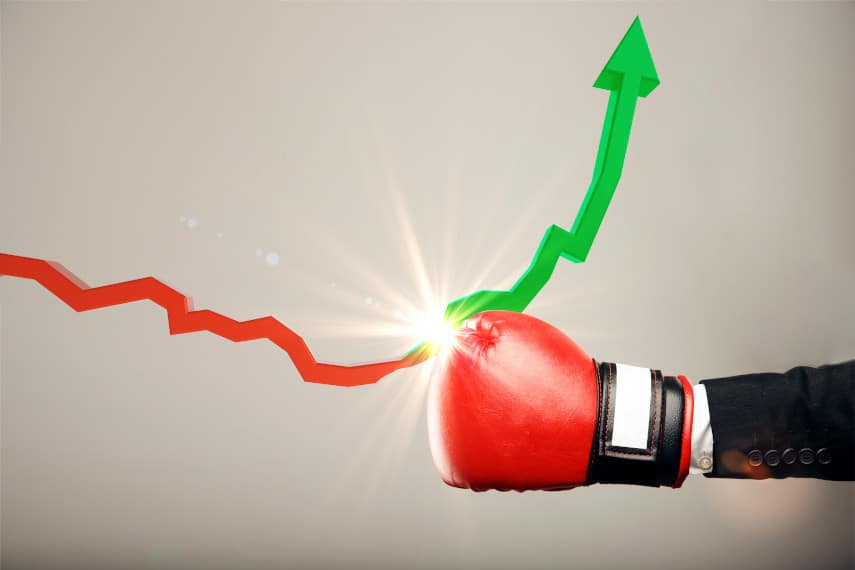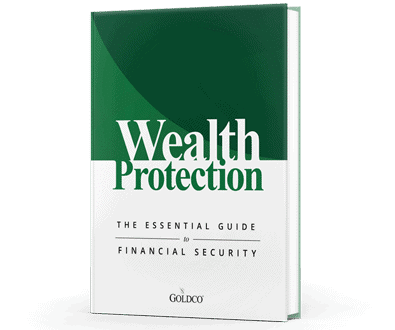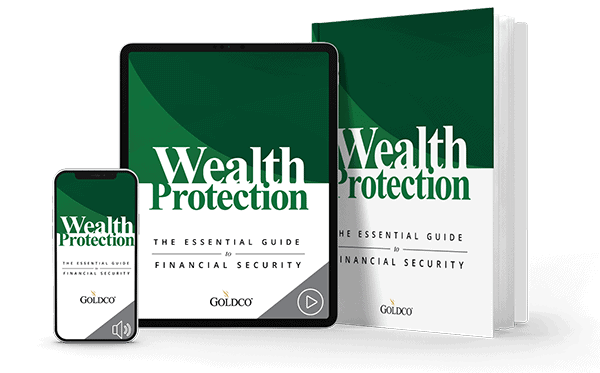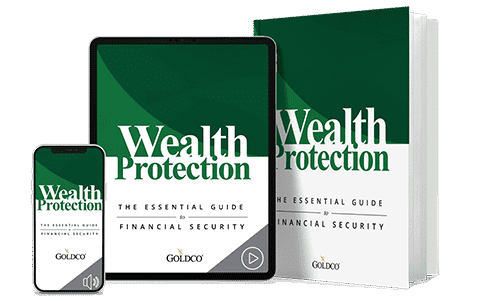War’s Effects on Gold, Oil, and Markets
If you had told someone at the beginning of 2022 that Russia would invade Ukraine, they wouldn’t have believed you The idea that in this day and age any country would just unilaterally attack...
Economy

For all the talk of economic recovery, the reality is that the economy won’t get back to normal until daily life gets back to normal. As much as economic crises and economic recoveries are fueled by actual events, there’s a lot of psychology involved too. If people feel insecure or feel that the economy is in a bad place, they begin to act in ways that bring about the economic crisis they’re afraid of.
While many people may throw caution to the wind and act as though COVID-19 never occurred, there are a great many more who remain on edge, uneasy about the post-COVID future. And with those people likely to change their spending habits significantly, it will be a long time before the economy gets back to normal. Here are just a few of the industries that will see significant changes to the way they do business.
The travel industry has been completely upended, and it’s unlikely to get back to normal this year, if at all. From airlines to cruise lines to hotels, the travel industry has seen its business collapse at an unprecedented rate.
Many countries retain quarantine orders against non-citizen entry, meaning that foreign travel isn’t going to get back to normal anytime soon. And many in the travel industry foresee a major shift change in how people travel, with more people choosing to travel shorter distances and by car rather than take planes for long-distance travel.
With the work from home revelation resulting in many businesses realizing the lack of need for business travel, that will place even more stress on airlines and hotels, whose business will likely suffer well into the future. And as hotels shut down and airlines default on loans taken out to finance aircraft purchases, those defaults will reverberate throughout the economy as their lenders take a hit too.
Can you imagine crowding into a line waiting to get into the Colosseum in Rome? How about a packed line to get to the top of the Eiffel Tower? Or how about milling about with the crowds along the top of the Great Wall of China? Tourism as we once knew it will likely change forever.
That’s bad news for cities and regions that depend on tourism. Think of New York City, Paris, Rome, London, and other major tourist hotspots. The vastly lower numbers of tourists will have an effect on tour bus companies, tour guides, and shops that cater to tourists. Tourists spend billions of dollars in major cities, and hundreds of billions of dollars in many countries, providing a huge boost to local economies and to tax revenues. Without those tourist dollars, both businesses and governments will suffer.
Restaurants in the US were just starting to see business pick up again, before news of the “second wave” of coronavirus caused reservations to take another hit. By some estimates, 25% of restaurants may end up going out of business due to the economic lockdowns. Those that remain in business will have to adapt to business models that require social distancing and more frequent cleaning and sanitizing. With restaurants having been one of the drivers of job creation in recent years, the depressive effect on the restaurant industry will cause shockwaves throughout the economy.
In 2008, the US government had to bail out General Motors and Chrysler. Auto sales dropped significantly as many households were in financial distress. We’re about to see the same thing happen this time around, as overly indebted American households just don’t have the money to keep buying new cars that get more expensive every year. That will harm an auto industry that’s already facing difficulty, with heavy debt loads and bond ratings in or near junk status.
You may think that having beaucoup COVID patients would be a boon to healthcare systems nationwide. But many hospitals haven’t been seeing that many patients. And because they’ve canceled services for other “non-essential” services like cancer screenings, diagnostic tests, etc., many are finding themselves in financial difficulty.
Doctors and nurses around the country are finding themselves furloughed or forced to take unpaid leave so that healthcare systems can cut costs. How many hospitals will end up going out of business because they’re losing so much money? The effects of COVID on the healthcare system could end up changing the healthcare landscape in this country significantly.
Schools at all levels, from kindergarten to college, have embraced distance learning. Even when school starts again in the fall, it’s not certain that many schools will return to in-school teaching. Those that have tried to plan for that have experienced pushback from worried parents and teachers. Could COVID spell the end for the traditional school system, and open up new opportunities for distance learning? That’s great for companies that can embrace it, but not too good for traditional educational institutions.
With so many firms having switched to telecommuting, and many finding out that their workforces have been just as productive as ever, the need for commercial office space will decrease. Companies had massive offices just because that’s the way it was always done. Now that they see they can make do with a smaller office footprint, expect to see a lot of office parks emptying.
Online shopping has also grown as a result of the COVID crisis, with the switch to home delivery accelerating trends that were already underway. As malls and department stores downsize, expect even more pressure in the commercial real estate industry.
We’re approaching what would have been the MLB All-Star break, but not a single game of baseball has been played this year. The NBA is trying to restart, the NFL is hoping to start more or less as normal, but who knows what any of these seasons will look like. Players are afraid to play lest they contract COVID, and fans are likely to stay away too.
Just like with the tourism industry, spending on sports is big business. From ticket sales to jerseys to betting, hundreds of billions of dollars of revenue is on the line here, and a continued lockdown or shortened seasons could see fans giving up and taking their money elsewhere.
What Will the Recovery Look Like?
With all these changes underway, a fully “recovered” economy is going to look much different than it did before COVID. Talk of V-shaped, U-shaped, or W-shaped recoveries are far too premature, and judging when the recovery is complete is going to be incredibly difficult. The economy is going to undergo some severe changes that could result in millions of people permanently being out of work, and it may be years before those people are reintegrated into the workforce.
None of this bodes well for the health of the economy, nor does it bode well for investors. Hope and expectations will only go so far, but without sales and revenue, businesses can’t keep their doors open. Not even the Fed’s printing presses can keep the economy going if business just isn’t there.
Investors who realize that, and who understand what that means for stock markets, have been heading for the exits. They don’t want to have anything to do with stocks in the event of another repeat of 2008, when stock market indices lost over 50% of their value. Instead, many are investing in gold, which tripled in price from 2008 to 2011.
With the stage set for a slowing economy and a likely stock market crash, gold is already making a run towards its all-time high price. In fact, the gold price has already hit an all-time high in India as investors there flock to the yellow metal as a safe haven investment.
If you haven’t already protected your retirement savings with gold, what are you waiting for? The saving grace of this economic downturn has been how slow it has gone so far, with investors having had months to observe what’s going on and make decisions about how to protect their investments. But time is running out. Don’t let your investments suffer as you sit on the sidelines thinking about what to do next – look into investing in gold today.



